
Articles by Palestine
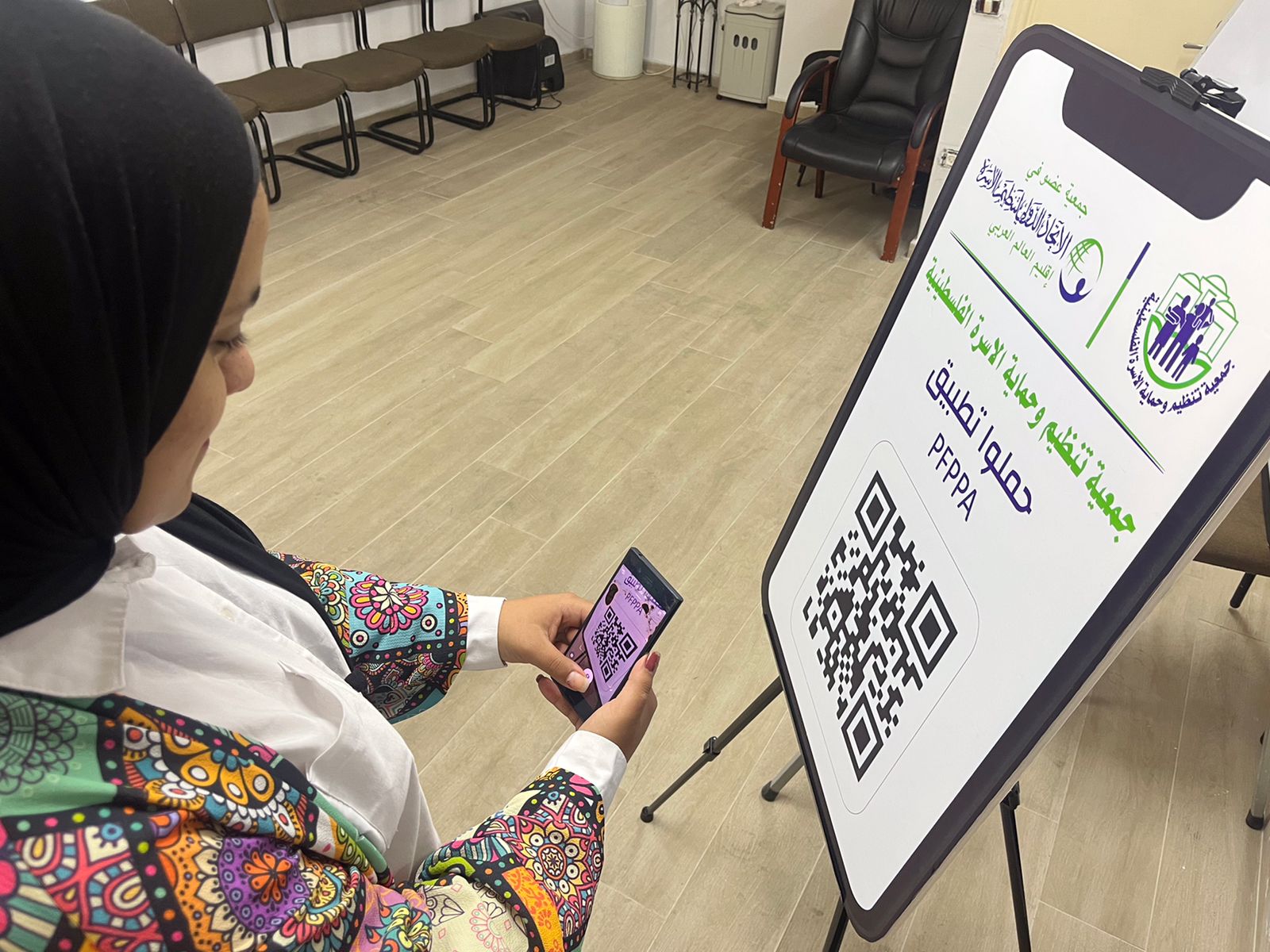
In Palestine, digital innovations center women and youth
It’s early in the morning, and Ammal Awadallah, the Executive Director of the Palestinian Family Planning and Protection Association (PFPPA) is on her way to the main office in Jerusalem. As with every morning, she checks in with her team who provide answers to the questions posed by clients across Palestine through the Association’s new sexual and reproductive health care mobile app. “There are a lot of questions from youth, women in particular, about sexual and reproductive health and gynecological health,” said Ammal. “We’re really trying to promote the app to women by having them make their appointments through the app, and then they’ll get curious to see other information and increase their awareness about other information and services we offer.” Established in Jerusalem in 1964, PFPPA is an independent, non-profit and non-governmental association. Last year on International Women’s Day on 8 March, thanks to a small grant from the IPPF Social Enterprise Hub, PFPPA launched its free mobile app to provide clients with information and access to services including sexual and reproductive health, gender-based violence and comprehensive sexuality education. The app is the first of its kind in Palestine and has been downloaded close to 2000 times over the past year - a number that Ammal hopes to see grow even more.
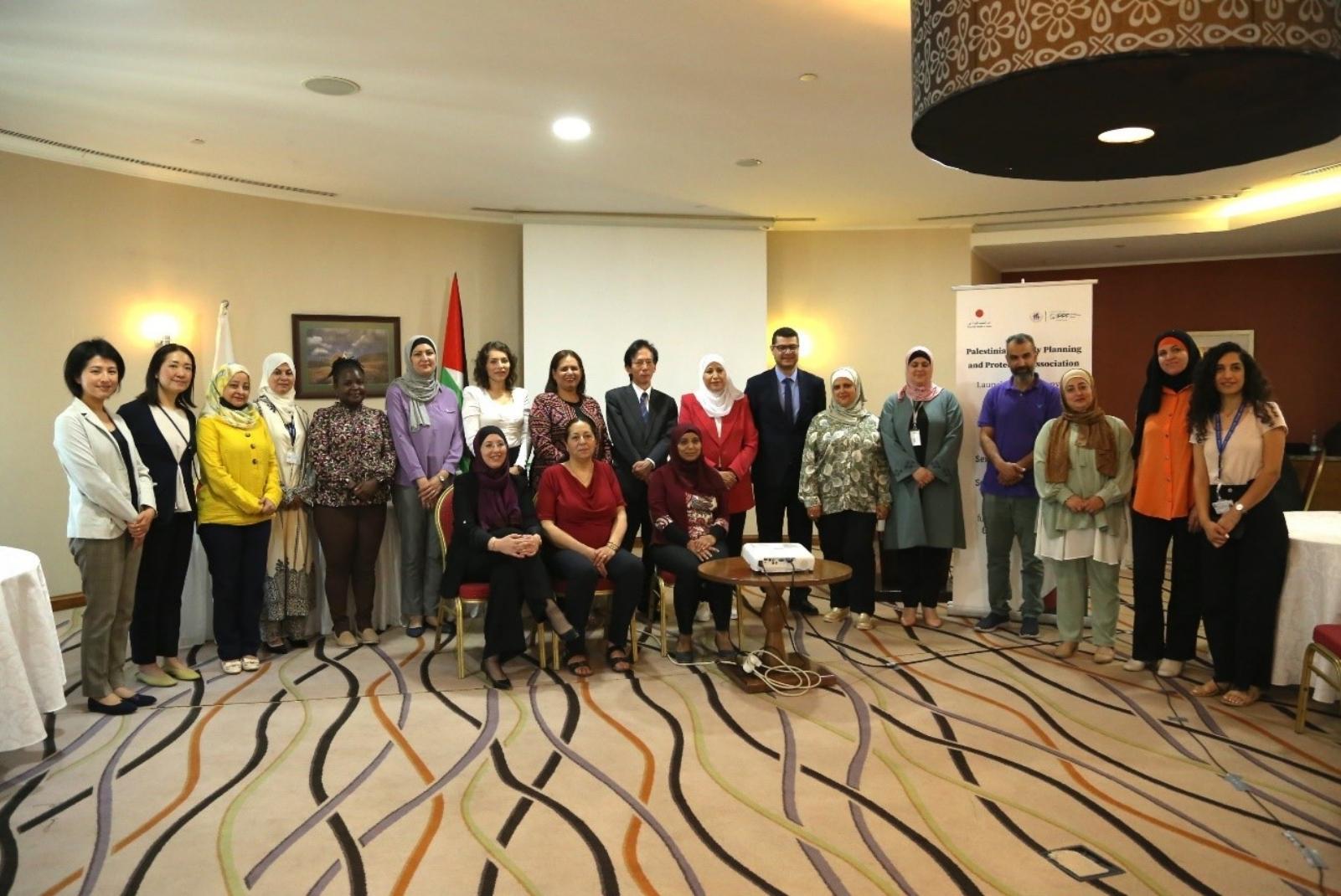
Palestine set to receive $600,000 from Japan to support human security and sexual and reproductive healthcare
On 8 June 2022 in Ramallah, Palestine, there was the inauguration of the project “Improving Human Security in Palestine Through Life-saving Sexual and Reproductive Health (SRH) Services for People Most in Need," funded by the Government of Japan and implemented by the Palestinian Family Planning and Protection Association, which is IPPF’s Member Association in Palestine. Recent studies indicate an increase in the number of cases of gender-based violence in Palestine, which requires rapid and timely interventions in terms of psychological and social support, medical services, women and child health services, and sexual and reproductive health services for survivors. This project will seek to address these unmet needs, by providing quality clinic-based SRHR services for women, youth and vulnerable communities in Gaza and the West Bank. It will also expand access to high-quality, life-saving sexual and reproductive health services to communities. Mr. Masayuki Magoshi, Ambassador of Japan for Palestinian Affairs, said, “We believe that having to living in fear of violence and sexual abuse are core issues of universal human rights. Peace in the region will never be attainable or sustainable in the long term if we do not apply a gender lens to issues. This project is significant in terms of Japan’s continuous commitment toward Palestinian people, especially women. I would like to reaffirm our commitments in line with international solidarity to Palestine, to ensure the implementation of the targets for the 2030 Agenda on maternal, newborn and maternal health in emergencies and ensuring that women have access to comprehensive health care.” Dr. Amal Hamad, the Palestinian Minister of Women Affairs, said, “the health sector plays a major role in providing comprehensive primary health care to all members of the society, especially services which are directed to women. We are committed to the SDGs especially SDG 3 and SDG 5 in particular and we will keep working to promote for them.” Mr. Sami Natsheh, the Board of Directors President for the Palestinian Family Planning and Protection Association, said, “The project aims at enabling vulnerable and underserved Palestinian women and girls living in difficult humanitarian environments to access and promote sexual and reproductive health services and rights, including services to reduce and combat sexual and gender-based violence by increasing the provision of high quality sexual and reproductive health services.” Dr Fadoua Bakhadda, Regional Director, IPPF Arab World Regional Office, said, ”This project is like a life jacket for women in Palestine, especially those in protracted crisis areas. This funding will ensure the continued provision of essential sexual and reproductive health services, including safe delivery, pregnancy care, family planning, HIV and disease prevention, sexually transmitted infections and their treatment, quality post abortion care, and psychosocial support for survivors of gender-based violence”. Palestinian Family Planning and Protection Association (PFPPA): Established in Jerusalem in 1964, the PFPPA is an independent, non-profit and non-governmental organization registered locally and IPPF’s Member Association in Palestine. PFPPA has service delivery points, located in the West Bank Areas of Ramallah, Bethlehem, Hebron and Halhoul, in addition to one in the Gaza Strip. In cooperation with local partners PFPPA is also responsible for 4 safe spaces to provide Gender Based Violence (GBV) related services in the Jerusalem area. PFPPA is focuses specifically to provide people with diverse options of SRHR services and is the only organization (GO or NGO) that provides contraceptive implants as a FP method. PFPPA is pioneer in the Harm Reduction module for the provision of Abortion Related Services and has provided Technical Assistance and shared their experience on this module with other local like minded organizations in addition to other IPPF Member Association’s as well. International Planned Parenthood Federation (IPPF) Arab World Office: IPPF is a global healthcare provider and a leading advocate of sexual and reproductive health and rights (SRHR) for all. Led by a courageous and determined group of women, IPPF was founded in 1952. Today, we are a movement of over 120 autonomous member associations and 23 collaborative partners with a presence in 146 countries. Established in 1971 the IPPF Arab World Region (IPPF AWR) is one of IPPF’s six regional offices. Based in Tunis, it is the leading Sexual and Reproductive Health (SRH) service delivery organization in the North Africa and the Middle East, and the leading Sexual and Reproductive Health and Rights (SRHR) advocacy voice in the region. For further information, or to arrange an interview with PFPPA’s Executive Director, Ms. Ammal Awadallah, please contact Ms. Abeer Dahbour, Communications Officer, PFPPA at [email protected]
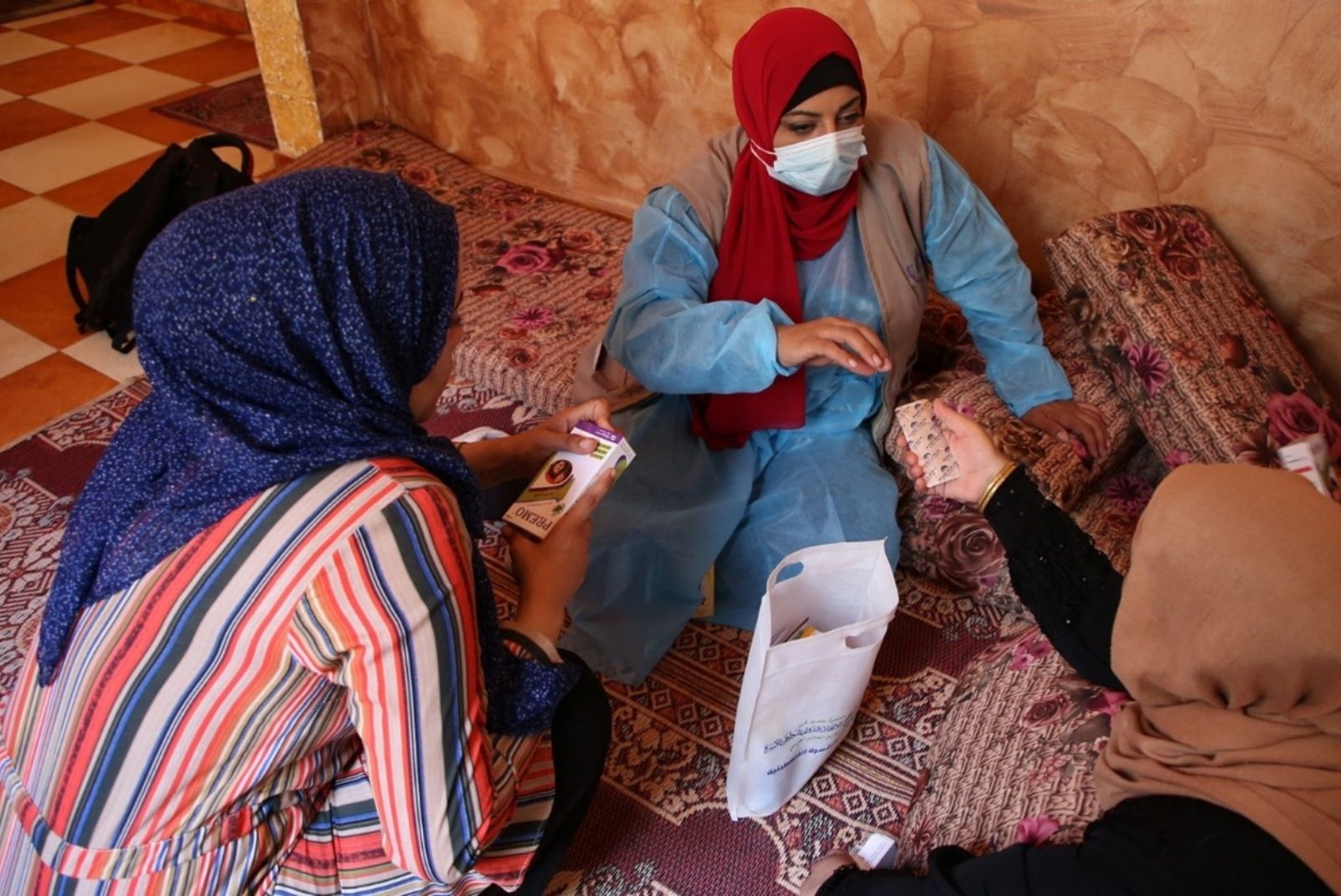
Government of Japan, through its support for IPPF, will provide life-saving health care services to the most vulnerable populations in Palestine
With support from the Government of Japan, the IPPF Member Association in Palestine (PFPPA) is launching a new project in Palestine targeting the most vulnerable populations that have been severely affected by the humanitarian crisis and the COVID-19 pandemic. It is estimated that at least 1.45 million people in Palestine are in need of healthcare-related humanitarian assistance. The escalation of the conflict in Gaza in May 2021, in addition to the long-standing severe restrictions on movement and inadequate healthcare systems, have resulted in the loss of many lives, the destruction of the healthcare system, and negative impacts of the COVID-19 pandemic. Together these have increased poverty levels and strained the healthcare system resulting in increased humanitarian and medical assistance needs. In 2022, it is estimated that 63% of the population living in Gaza and 23% in the West Bank will continue to need humanitarian assistance. The vulnerability of women and girls in particular is even greater, with serious and sometimes life-threatening health consequences. In this context, PFPPA will reach vulnerable and hard-to-reach populations (especially women and girls) with sexual and reproductive health and rights (SRHR) services, including sexual and gender-based violence (SGBV) related services. This will focus on five locations: Gaza, Hebron, Halhoul, Bethlehem and Ramallah. By the end of February 2023, PFPPA aims to: Deliver quality SRHR and SGBV-related services to approximately 36,000 women and young people through PFPPA clinics in the 5 project target areas. Deliver a Minimum Initial Service Package for reproductive health in crisis situation (MISP: sexual and gender-based violence response, HIV and sexually transmitted disease prevention and treatment, emergency obstetric newborn care, family planning, comprehensive abortion care, etc.) to 4,800 people through mobile clinics in project target areas in Gaza and the West Bank. Deliver prenatal and postpartum door-to-door services to 160 women, including counselling and services to promote healthy pregnancies and prepare women for childbirth. Deliver "birth preparedness" services to 30 women and distribute kits consisting of basic supplies for pre- and postpartum preparation, including essential newborn care. Deliver SRH and SGBV services to 2,000 women and girls through mobile apps and telecommunication projects. H.E. Hajime Hayashi, Ambassador of Japan to the United Kingdom, said: “We are delighted to be working with the IPPF to improve the health of women in Palestine, who are increasingly vulnerable to the humanitarian crisis and the impact of the new coronavirus outbreak. This effort will not only contribute to the realization of Japan's emphasis on Universal Health Coverage (UHC), but will also have a direct effect on human security.” Dr Alvaro Bermejo, Executive Director of IPPF, said: “With the support of the Japanese government, IPPF will be able to provide health and life-saving services to vulnerable women in Palestine. We are very grateful for the opportunity to work with the Japanese government to stand with those affected by the conflict and the COVID-19 to ensure that no one is left behind.” Ms Ammal Awadallah, Executive Director of PFPPA, said: “PFPPA is committed to ensuring that all services provided by their team to the population, regardless of each individual's circumstances, are of high quality and are provided securely, with dignity and respect, protecting all those involved from any form of harm. Furthermore, through the generous support of the Japanese government, for which we are greatly appreciative, PFPPA will be able to deliver essential services related to Sexual Reproductive Health Rights (including SGBV) to those living in marginalized and remote areas most in need of such services.” International Planned Parenthood Federation (IPPF): Founded in 1952 in Bombay, India, IPPF’s founding members included Madam Shizue Kato, one of Japan's first female parliamentarians and the leader of the family planning movement. Today, IPPF is one of the world's largest international NGOs working to defend sexual and reproductive health and rights and to deliver SRH services and information to all people (especially vulnerable people) through its grassroots network of 120 Member Associations and Collaborative Partners working in 140 countries including Palestine around the world. Contact: Yuri Taniguchi, Chief Strategic Partnerships and Development Advisor (S.E.Asia), International Planned Parenthood Federation (IPPF) London Office
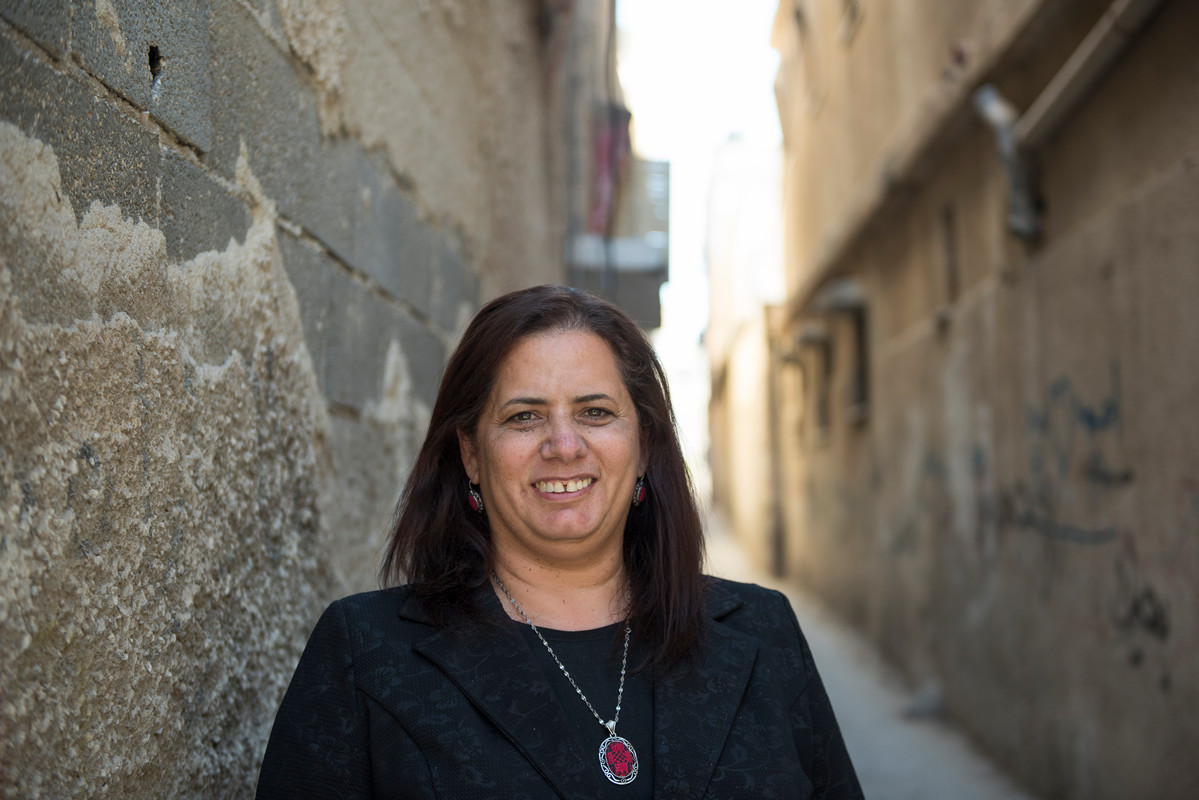
Women in Leadership: Ammal Awadallah, Palestine
Ammal Awadallah began her career as a finance and administrative director for the Palestine Family Planning and Protection Association (PFPPA), a position she held for 12 years. During that time her passion in women’s rights and sexual and reproductive healthcare continued to grow, and in 2019, she took on the role of PFPPA’s Executive Director. As part of our Women in Leadership series, IPPF spoke to Ammal about leading an organization through emergency responses, pushing for change, and empowering women. Growing up in Palestine what was your experience of sexual and reproductive health and rights (SRHR), did you receive sex education? Although I do not recall specifically, I think it would have to have been sometime in my early teens. Although that was quite a while back, I went to a Quakers school in Palestine, and I do recall a visit from a health worker to our classroom to explain to us about family planning methods and protected sex. What led to your interest in sexual and reproductive health? I was always a strong supporter of women’s rights; however, it was not until I began working with PFPPA that I actually became specifically aware and developed an in-depth interest in SRHR. Noting that although I joined the PFPPA team as a Financial Director, it was clear from the start that my role would be more than just that. I was passionate of what we were working towards, and the more information I gained the more passionate I became, I felt that what I was working towards was reflecting what I truly believe in. I found a way to support a joint goal with colleagues, not only locally and nationally but also globally through the IPPF. How would you describe your role as Executive Director (ED) of PFPPA? Responsibility, leadership, management, supervising, delegating, following up, monitoring, evaluating, responsibility, transparency, accountability. How did you incorporate all these leadership skills in the recent emergency response following the airstrikes in Gaza? Being a leader, and as the ED, I think it was truly one of my main responsibilities to be accountable both to the community (the people in Gaza) and to the donor providing the money. We got in contact with our service providers that were living in the zone - some of them had their homes effected during the attacks on Gaza - and we were asking them what the best and safest way is to deal with it and what is best for everyone. Together we agreed on the best approach to provide sexual and reproductive services. This was a joint venture; I know what’s happening in the field from the service providers, and that they are the real heroes and I have a huge responsibility to my team. We try to be as transparent and accountable as possible. For us as an association, working since 1964, we have been providing services within a protracted humanitarian crisis setting for decades. This has made us stronger and increased our commitment to ensure continuity to provide essential services regardless of the difficulties we encounter. What challenges have you faced leading SRHR services in humanitarian emergencies during the COVID-19 pandemic? Although they are numerous, the one that was extremely challenging was ensuring that our regular clients were being followed up, particularly those that were adopting methods such as condoms, pills or injections as family planning methods and feared that they would not be able to obtain these methods during the lockdowns and would result in unwanted pregnancies. However, it was the prompt response and experience of the team in facing lockdowns imposed by the Occupational Forces in previous years that allowed them to come up with approaches to reach women in their homes directly, to lessen the chances of unwanted pregnancies occurring. In addition, it was also a challenge to ensure that women could get in contact with our team to at least receive counselling and consultation. However, this was also quickly dealt with by utilizing social media channels to disseminate contact phone numbers of doctors, midwives, social workers, psychologists, and even lawyers. Furthermore, before a month of lockdowns passed, a free hotline was established, and a social worker was taking calls and also referring cases to the service providers mentioned earlier or to other partner associations for further assistance. What changes have you seen in Palestine over the years when it comes to sexual health and rights? Youth are becoming more encouraged and empowered in addressing SRHR issues. They are more outspoken, more aware and have the ability to be significant leaders and agents of change. What areas are still taboo in Palestine, and how do you push for change? Speaking about women's rights in general is still extremely challenging. The way we push for change is always based on respect for the opinion of others and our country context. We try to address the topics from a scientific evidence-based approach, highlighting the positive experiences of other countries when change was made. We approach the general public in order to provide them with information and empowerment to make well informed decisions. At the same time, we work to advocate for change with decision makers. Noting, as an Association, we are always respectful of others' opinions and work in alignment with out country's context and culture. Can you see yourself doing anything other than what you are doing right now? No, I don’t think so! I’ve never really thought about it. I believe in the work of NGOs, and I believe NGOSs do make an impact on the lives of people within the community. So, I feel like my work gives back. I’ve had a good life and so I feel like I should give back to my community that deserves it. So, I can’t think of ever working with anything that doesn’t involve giving back to my community to become a better place. One of my favourite slogans for the IPPF particularly is our work being ‘globally connected and locally owned’ which I believe supports our Association to make a stronger and more effective difference towards SRHR. What’s the best thing about your role? I feel like my work with the PFPPA I can make a difference in improving and empowering specifically women and youth in their lives, not only having an impact on them directly but also on those around them. Can you share an example of how you empower local women? There are certain moments in my life when I feel like all the sleepless nights are worth it. It might not be every day, but I can tell you for example when I attend an event and women share their stories of their experiences of how through this training, they have learnt about family planning methods, and they now feel that they have the information they need to make decisions on their own. When we have sessions for women for our survivors of sexual and gender-based violence, we continue to support with life skills training, and at times we give them small grants to begin projects and they say that with the money they are making, they are more independent and are able to have an impact on decisions made within their families, such as being they now have control of this money and are able to support their children. These are times when I say this whole year was worth it! How do you like to spend your free time? I laughed when I saw the words “free time”. However, all joking aside… I like to spend time with my family, I enjoy cooking and baking, and in the winter, I often like to knit (although it’s been a few years since I have had time too). Finally, if there’s one thing in the world that you have the power to change what would that be? For Palestinians to live in Palestine freely, independently, and with respect and dignity.

In pictures: Innovating during COVID-19
Women around the world have faced multiple barriers to accessing safe abortion care during the COVID-19 pandemic including the de-prioritization of sexual and reproductive healthcare, overwhelmed health systems and restrictions on movement. The COVID-19 crisis has sparked innovation among IPPF Member Associations who responded swiftly by developing new approaches to reach women with safe abortion care including telemedicine and home-based provision of medical abortion. Strong evidence generated from this work supports the continuation and strengthening of these approaches beyond the end of the pandemic. Cameroon Cameroon National Planning Association for Family Welfare (CAMNAFAW) To ensure that quality abortion care can be provided to women during travel restrictions, CAMNAFAW’s service providers travel to partner clinics in underserved areas and to clients’ homes to provide medical and surgical abortion care. This model of taking safe abortion care closer to women will continue even with easing of travel restrictions, as this has been found to be an effective and acceptable approach to increasing access.Photo: IPPF/Xaume Olleros/Cameroon Share on Twitter Share on Facebook Share via WhatsApp Share via Email Guinea Association Guinéenne pour le Bien-Etre Familial (AGBEF) Building on lessons learned during the Ebola crisis in Guinea, AGBEF quickly took measures to prevent infection in its clinics to continue providing sexual and reproductive healthcare, including surgical and medical abortion, in a safe environment. AGBEF donated protective materials to communities, including hand-washing stations, face masks and antibacterial gel, alongside messaging on infection prevention. This community visibility reassures clients they can safely attend AGBEF clinics for abortion and contraceptive care.Photo: AGBEF/Guinea Share on Twitter Share on Facebook Share via WhatsApp Share via Email India Family Planning Association of India (FPA India) FPA India and partners advocated to have sexual and reproductive healthcare, including abortion, recognized as essential by the government, which meant FPA India could continue healthcare delivery during the national lockdown. To reduce in-person clinic visits, FPA India established teleconsultation and counselling for abortion care, and is continuing to provide in-clinic care for both medical and surgical abortion. Photo: IPPF/Alison Joyce/India Share on Twitter Share on Facebook Share via WhatsApp Share via Email Nepal Family Planning Association of Nepal (FPAN) FPAN and partners advocated for interim approval of home provision of medical abortion and telemedicine for abortion counselling during COVID-19. FPAN is now implementing these approaches, ensuring continued access to abortion care in Nepal, where many people live in remote locations with limited mobility, which has been further restricted by COVID-19 lockdowns. Photo: FPAN/Nepal Share on Twitter Share on Facebook Share via WhatsApp Share via Email Pakistan Rahnuma – Family Planning Association of Pakistan (Rahnuma-FPAP) Rahnuma-FPAP and partners successfully advocated for the government to class sexual and reproductive healthcare as ‘essential’, which enabled the team to continue providing post-abortion care during the pandemic. Rahnuma-FPAP expanded its telemedicine and home-based provision for menstrual regulation counselling and post-abortion care. These new approaches have ensured continued access to services for clients unable to reach clinics.Photo: Rahnuma-FPAP/Pakistan Share on Twitter Share on Facebook Share via WhatsApp Share via Email Palestine Palestinian Family Planning and Protection Association (PFPPA) In response to the government-mandated closure of its clinics, PFPPA quickly established a toll-free call centre which provides consultations, counselling, referrals and follow-up, including consultation for abortion care through a harm reduction approach, ensuring that women are provided with accurate information. Due to its success, PFPPA is exploring options for continuing this healthcare delivery model beyond the pandemic, with the aim of keeping it free of charge for users.Photo: SAAF/Samar Hazboun/Palestine Share on Twitter Share on Facebook Share via WhatsApp Share via Email Sudan Sudan Family Planning Association (SFPA) Following a nation-wide shutdown in April, SFPA established a call centre to increase access to healthcare, including abortion and contraceptive counselling and referrals. An unexpected outcome of the new call centre is that it has reached an increased number of young women who regularly call to discuss their reproductive health and rights. SFPA is working towards institutionalizing this model for continuation beyond the pandemic.Photo: SFPA/Sudan Share on Twitter Share on Facebook Share via WhatsApp Share via Email Togo Association Togolaise pour le Bien-Etre Familial (ATBEF) ATBEF adapted its mobile application ‘Infos Ado Jeunes’, adding a toll-free teleconsultation service for young clients to use to access abortion consultations and pre- and post-abortion counselling. This app has given young clients ongoing access to care when they face challenges travelling to clinics. It has also eased overall client flow in clinics at a time when social distancing is being implemented.Photo: ATBEF/Togo Share on Twitter Share on Facebook Share via WhatsApp Share via Email
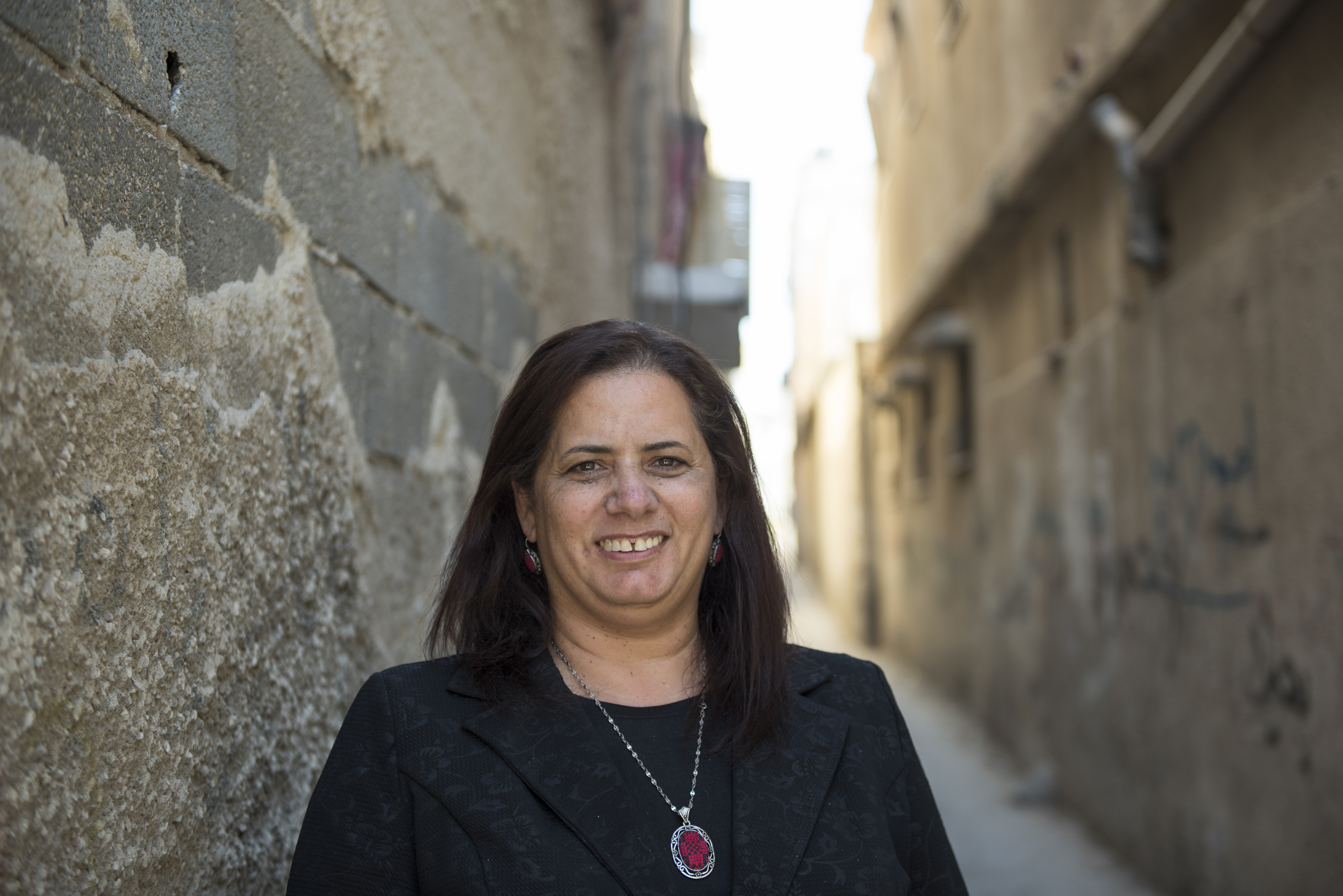
COVID-19 Impact: What we know so far – Palestine
An interview with Ammal Awadallah, Executive Director of the Palestinian Family Planning & Protection Association (PFPPA), on the impact of COVID-19. How badly has Palestine been affected by the coronavirus? As of March 21, 52 cases have tested positive for the coronavirus (COVID-19) according to the Palestinian Ministry of Health. 17 of those have been treated and cured (although they are currently under another two weeks of quarantine and isolation), and 35 remain affected. Although the majority of cases were identified from the Bethlehem area, most recently more cases have been found in other areas too. It is also worth mentioning that as of the date mentioned above, 3,945 tests have been taken. What impact is it having when it comes to sexual and reproductive health and rights (SRHR)? In line with the Ministry of Health (MOH) advice given in Palestine on 7 March, which was to avoid gatherings as a preventive measure, PFPPA cancelled all its outreach activities and planned training courses. This, of course, led to a decrease in the number of people that we were able to reach with accurate information on SRHR topics. In addition, it was noted from the service providers that the obstetric services decreased noticeably as it seemed pregnant women were afraid to seek services as people had been advised not to leave their homes if not necessary. What services have been the worst hit so far? To start with, when activities were curtailed on 7 March we saw a big impact on gender-based violence (GBV) and psycho-social support, as well as obstetric services. All outreach activities were impacted at that point, including (but not limited to): community outreach sessions, peer-to-peer-sessions, mobile outreach campaigns and home visits. Long-acting reversible contraception services (LARCS) have also been affected. Are frontline staff still able to go into the community? Outreach is cancelled but as was agreed by the MOH, health service staff can provide services from the clinics or facilities in their area in order to decrease the movement from one area to another. There’s a minimal number of staff on shift at the facilities at any one time to reduce contact. What are you doing to continue providing services to people in Palestine? Unfortunately on 23 March we had to close down our service delivery points and headquarters. However, we will be able to provide psycho-social services through a mobile telephone line which our GBV focal person will look after. In addition, our HQ staff will be working from their homes. What message do you have for people/your staff in Palestine when it comes to SRHR and coronavirus? You should always use prevention measures – as both individuals and service providers at work – in your community and in your homes. Always share information on prevention measures wherever and whenever you can, if at the service delivery point, at home, with family and friends. For service providers, and social workers particularly, provide services wherever you are if you can. Even if you are at home and you know of someone in need please find a way to get in contact with them, even if it’s by phone to provide a consultation and/or counselling) – you can make a difference. Always remember that if you get the virus but aren’t badly affected, it could be transferred to someone who can be badly affected. We all need to remain calm, and think with a clear head. Panic and chaos cannot result in any good for anyone. We must be patient, cooperative and all have the bigger and overall goal in our minds, and take actions which will help confront this global pandemic.
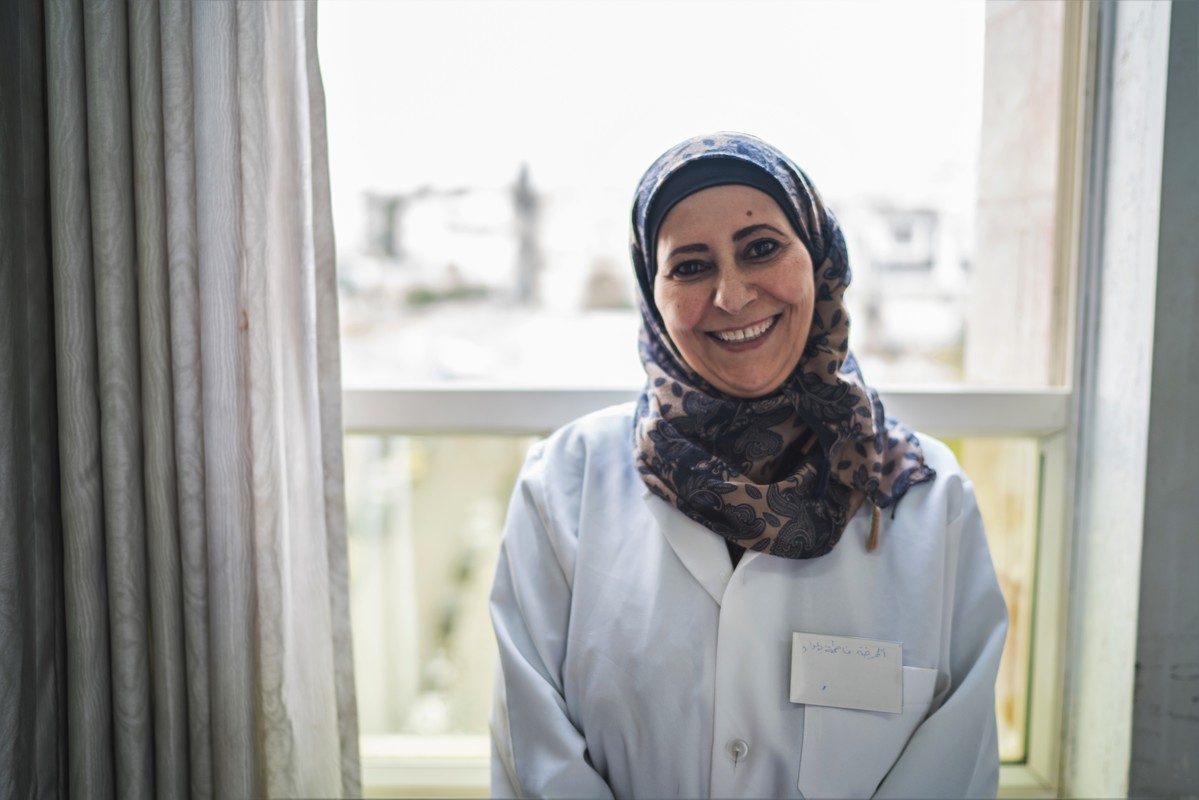
"Women in our communities use many unsafe methods to try to end pregnancies"
Women and girls in Palestine face a number of difficulties and challenges. The ongoing conflict and lack of sitting government as well as high unemployment, has led to poverty and inequality, while an increasingly conservative society and traditionally patriarchal culture has led to increased gender-inequality and lack of access to sexual and reproductive healthcare. The current abortion law unfairly pushes women to risk their lives and health to attempt to end their unwanted pregnancies in unsafe ways. In this context, the Palestinian Family Planning and Protection Agency (PFPPA) has been working since 1964, to provide sexual and reproductive healthcare and advocate for women’s rights. Having received two grants from Safe Abortion Action Fund (SAAF) since 2014, they have been working on the lack of access to safe abortion in the country with a focus on increasing their provision of abortion-related services and advocating at community and national level for changes to the abortion law. My name is Fatima, I am a midwife and have worked with PFPPA for 18 years in the Halhul clinic in Palestine. PFPPA has had a great impact on me personally as well as the community as a whole. I experienced violence in my marriage but when I joined the organization I learned the meaning of violence and I realized that I didn’t have to put up with it and could make decisions for myself. This was a turning point in my life. My life changed 180 degrees, thank God, and my husband stopped being violent. Society & acceptance Since I have worked here, I have seen changes in society’s acceptance of sexual and reproductive health issues and I feel that more people are supporting us. They can be women, religious personalities or young volunteers. One of the proudest moments of my work has been working with a young man who was training to be a peer educator, he was violent, especially with his sister. From the very start of the training, he was against the issues that we were presenting, however, he started to understand our issues. I also met his mother and she thanked me for the change that happened in his life. She came to say that he is now helping in the house - washing dishes and doing other tasks that he would have thought were just for women before. The challenges that we face are a misunderstanding of religion, negative traditions and customs, as well as the political situation in Palestine with the occupation, the walls, the checkpoints as well as the economic situation. We work on issues that will take many years to witness any change due to the negative traditions and customs. Harm reduction & abortion care We have recently started implementing a harm reduction approach to abortion care. I remember one woman who was 44 years old and divorced. She came to the clinic and was seven weeks pregnant. Her face was pale and tired...I felt that all the problems were on her shoulders. She was looking for a saviour. We supported her with harm reduction information and afterwards provided information on post-abortion contraception. After one or two months she sent a message thanking me, saying that we had saved her life, I was really happy about that. There are also cases of women that come here, maybe they took pills or they did something that made them bleed. They don’t tell you what they did but I can detect if I think an abortion happened. If it is an incomplete abortion, we explain how to take the treatment and we follow up with support. Unsafe methods Women in our communities use many unsafe methods to try to end pregnancies. They drink special teas or chlorine. They jump off things or ask their children to jump on them. They sometimes put suppositories made from Arabic medicinal herbs into the cervix. Although it is common, deaths are not registered as linked to unsafe abortion but are probably registered as maternal deaths. When the society says that abortion is haram (forbidden), they don’t take into consideration the issues and these women in need. Imagine if we had safe abortion services at the hospitals, we would not see these issues at all. There are women who would choose abortion for reasons like their age, their health, social issues and psychological issues. There are women themselves who say “I will die if I complete this pregnancy”. I am passionate about the work that I do. I advocate for these issues everywhere I go, on the bus, during weddings and with friends and family, wherever I go. That is why the Safe Abortion Action Fund (SAAF) funded project is so important. I have learned a lot about advocacy and campaigning, how we manage legal advocacy and how to work with decision-makers. We have run events to mark International Safe Abortion Day with groups of women gathered here in the centre and with decision-makers and volunteers. Read more stories from SAAF in Palestine
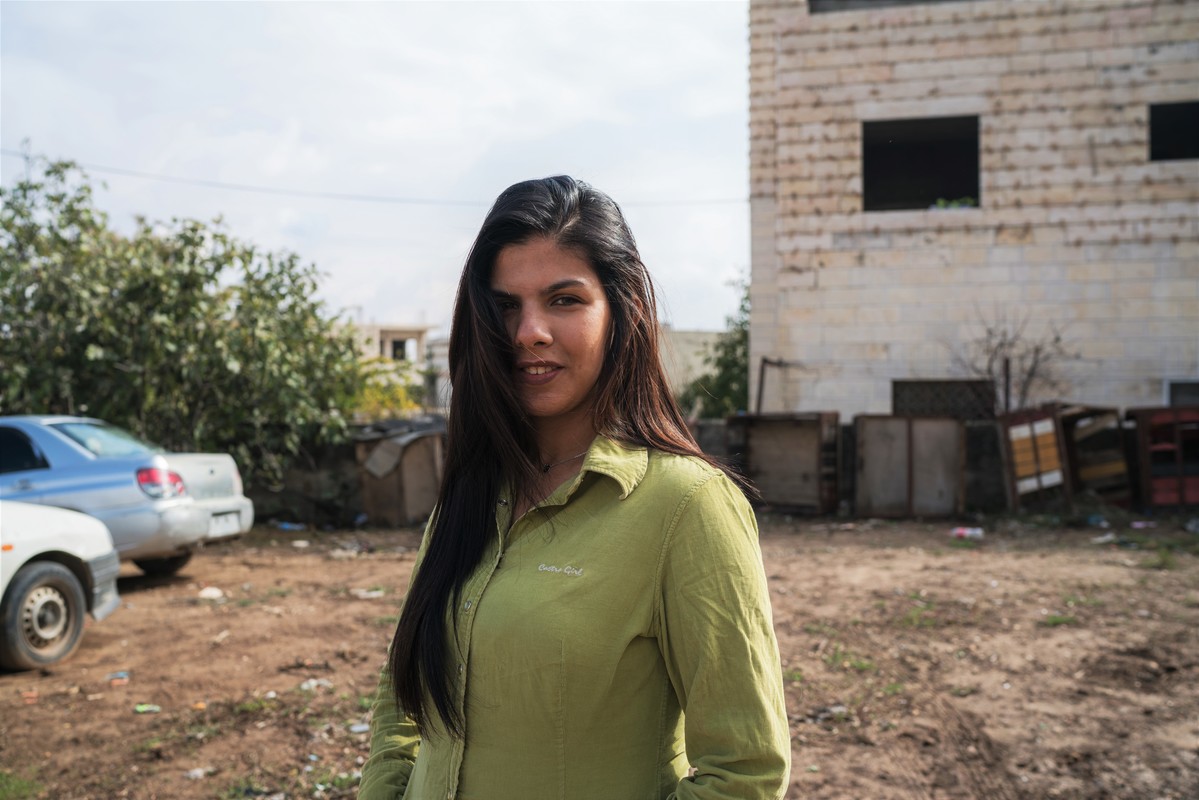
"The students don’t normally ask about abortion as it is such a taboo"
Women and girls in Palestine face a number of difficulties and challenges. The ongoing conflict and lack of sitting government as well as high unemployment, has led to poverty and inequality, while an increasingly conservative society and traditionally patriarchal culture has led to increased gender-inequality and lack of access to sexual and reproductive healthcare. The current abortion law unfairly pushes women to risk their lives and health to attempt to end their unwanted pregnancies in unsafe ways. In this context, the Palestinian Family Planning and Protection Agency (PFPPA) has been working since 1964, to provide sexual and reproductive healthcare and advocate for women’s rights. Having received two grants from Safe Abortion Action Fund (SAAF) since 2014, they have been working on the lack of access to safe abortion in the country with a focus on increasing their provision of abortion-related services and advocating at community and national level for changes to the abortion law. My name is Amani and I am 24 years old. I live with my parents in Bethlehem in the West Bank and I work as a midwife in a family hospital in Jerusalem as well as a peer education volunteer with the Palestinian Family Planning and Protection Agency. Working in schools Part of my role as a volunteer involves going to schools and doing presentations about early-marriage, family planning and gender-based violence. Even though sex outside of marriage is taboo, it does happen. However, it is very hard for unmarried people to access contraception as the culture is so restrictive, especially here in Hebron. When they need contraception, the man usually goes by himself or they look online. When we go to schools and talk to students about the subject of sexual health, the students want to know more because at home it is a taboo to talk about such things. We get many questions about issues such as masturbation or what causes pregnancy. They just know that it happens when men and women are together, they do not know how it happens. So people may ask a question like: ‘if I touch somebody, if I stand near someone or kiss them will I get pregnant?’ Abortion is still a taboo The students don’t normally ask about abortion as it is such a taboo. I do know that unsafe abortion happens though, for example my grandmother tried to end her pregnancy once. She was forty-five years old and had six children already. She did not know any way of not getting pregnant or safely ending the pregnancy. She told me that she drank liquids and jumped from the stairs, taking a great risk. She really didn’t want to be pregnant again and tried hard to end it but it did not work. I am very proud that as a peer educator I have expanded my knowledge on many issues, including how to provide harm reduction information to women so that they can reduce risks of unsafe abortion and not do what my grandmother did in case they don’t want to be pregnant. Once I met with a woman who already had six children, she was tired of having children but her husband wanted to have more so we visited them at home and through conversation, the husband understood the need, so she was able to access an IUD. Here we work a lot with women, we change them, we speak with them, they change their opinions, they become decision-makers and they leave the clinic as different people. Read more stories from SAAF in Palestine
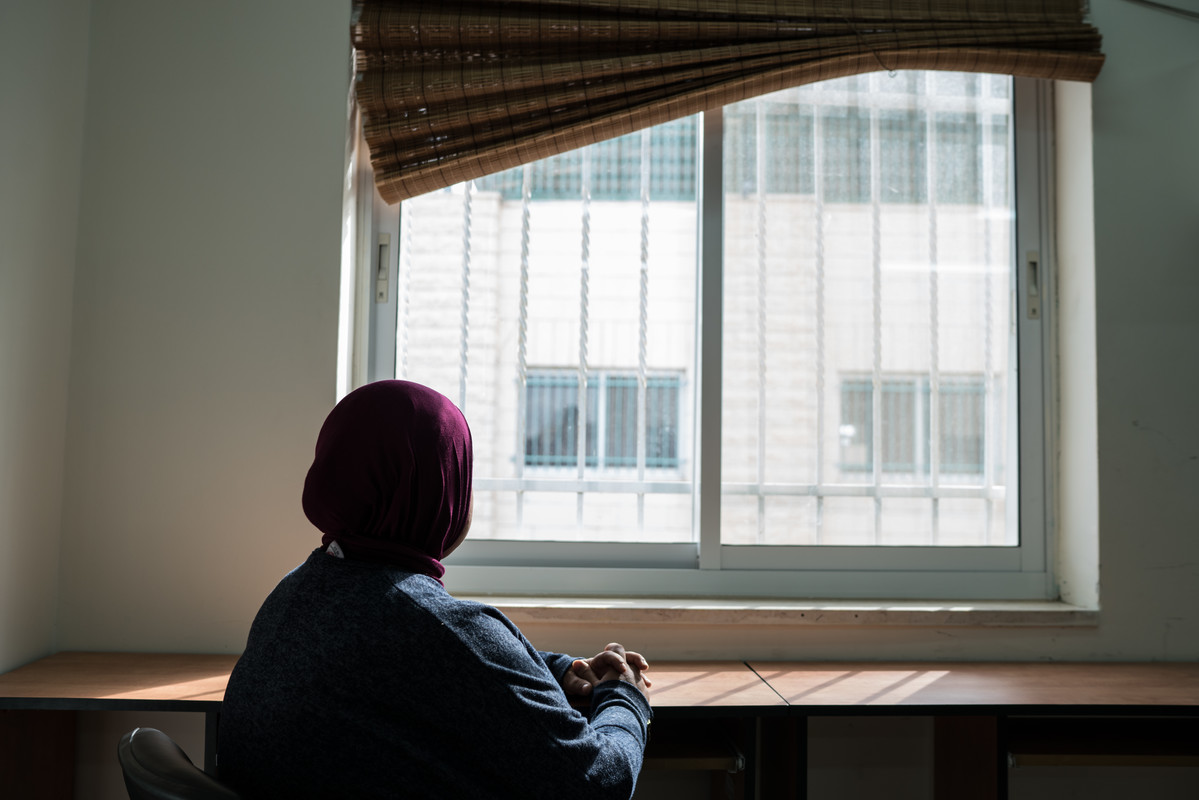
"From my experience the situation in relation to abortion in Palestine is very hard"
Women and girls in Palestine face a number of difficulties and challenges. The ongoing conflict and lack of sitting government as well as high unemployment, has led to poverty and inequality, while an increasingly conservative society and traditionally patriarchal culture has led to increased gender-inequality and lack of access to sexual and reproductive healthcare. The current abortion law unfairly pushes women to risk their lives and health to attempt to end their unwanted pregnancies in unsafe ways. In this context, the Palestinian Family Planning and Protection Agency (PFPPA) has been working since 1964, to provide sexual and reproductive healthcare and advocate for women’s rights. Having received two grants from Safe Abortion Action Fund (SAAF) since 2014, they have been working on the lack of access to safe abortion in the country with a focus on increasing their provision of abortion-related services and advocating at community and national level for changes to the abortion law. My name is Khawla*, I am 42 years old and I am a midwife and university lecturer. I have been married for 10 years and have three children, two boys and a girl. I have multiple health issues and a number of hereditary conditions in my family. I first became involved with PFPPA through my work, having taken many trainings with them about issues such as early marriage, gender-based violence, sexual health and safe abortion. Then last year I accidentally became pregnant myself. My youngest child was just two years old, I had a new job at the time and was suffering with a number of health issues that would make another pregnancy dangerous for me. Unintended pregnancy When I read that the pregnancy test was positive, it was a very hard time. I started crying – I felt like the world was very black – it was the end of my life. I would kill myself, if I didn’t end this pregnancy. So I came to PFPPA and they treated me as a client. I met with the social worker, midwife and doctor and, since the pregnancy was risk to my life and I was very weak and bleeding when I reached them they were able to prescribe the tablets. These pills are highly regulated and restricted here and not all pharmacists stock them but I was able to access them with the prescription and they worked. PFPPA provided follow up afterwards helping me to find an effective long-acting family planning method. Even though I knew about the different methods, they discussed them all with me to ensure that they would be appropriate for my health. Even though the law allows abortion in cases of risks to health of the woman, you need to get permission from the religious leaders and they are very hard to convince. I took my case to them and, despite my health issues, they refused despite it being very early in the pregnancy, before the ensoulment and is allowed according to Islam. The public hospital will not perform it unless they receive the permission from the religious leaders and they don’t give it despite what the religious rules say. Stigma & access From my experience the situation in relation to abortion in Palestine is very hard. There are many women who get pregnant who did not plan it and it’s not the time for the pregnancy. The door is closed to them from the public health system. I have started to campaign on this issue now, I talk to the students in my course about how we can solve this problem. I think the stigma is very difficult. I never thought I would be in this situation, I talked a lot about it before but when you are in the situation, it is totally different. I really appreciated the help given from the PFPPA team, particularly the psychological support. When I felt bad, they helped me to see that I was doing the right thing and it was my right. Read more stories from SAAF in Palestine *Not her real name

Japan Trust Fund
The Japan Trust Fund (JTF) represents a visionary partnership that began in 2000 between the Government of Japan and IPPF. Together, we invest in programmes that prioritize health equity, gender equality, and human security for all. Traditionally a driving force behind IPPF's efforts to support the integrated HIV prevention programmes of our Member Associations in Africa and Asia, JTF has adjusted to reflect changing global health priorities. We attach importance to universal access to sexual and reproductive health and rights - an essential contributor to universal health coverage and the global development goals. These projects have transformed the lives of people most vulnerable to HIV and high risk of maternal and child mortality. Equally, it ensures that as a donor, the GOJ’s response to HIV remains people-centred and contributes to human security.
Pagination
- Previous page
- Page 3
- Next page







